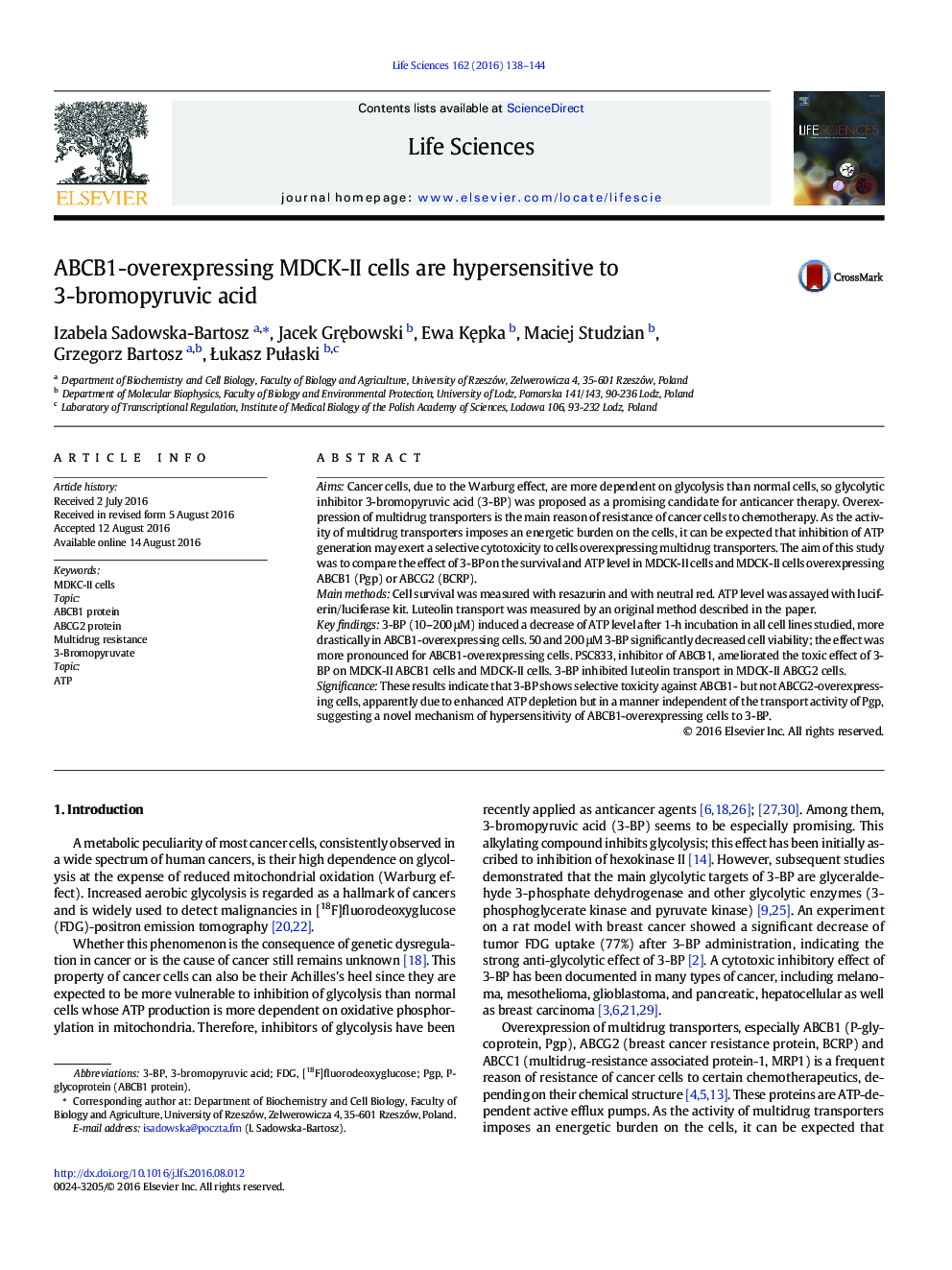| Article ID | Journal | Published Year | Pages | File Type |
|---|---|---|---|---|
| 5841287 | Life Sciences | 2016 | 7 Pages |
AimsCancer cells, due to the Warburg effect, are more dependent on glycolysis than normal cells, so glycolytic inhibitor 3-bromopyruvic acid (3-BP) was proposed as a promising candidate for anticancer therapy. Overexpression of multidrug transporters is the main reason of resistance of cancer cells to chemotherapy. As the activity of multidrug transporters imposes an energetic burden on the cells, it can be expected that inhibition of ATP generation may exert a selective cytotoxicity to cells overexpressing multidrug transporters. The aim of this study was to compare the effect of 3-BP on the survival and ATP level in MDCK-II cells and MDCK-II cells overexpressing ABCB1 (Pgp) or ABCG2 (BCRP).Main methodsCell survival was measured with resazurin and with neutral red. ATP level was assayed with luciferin/luciferase kit. Luteolin transport was measured by an original method described in the paper.Key findings3-BP (10-200 μM) induced a decrease of ATP level after 1-h incubation in all cell lines studied, more drastically in ABCB1-overexpressing cells. 50 and 200 μM 3-BP significantly decreased cell viability; the effect was more pronounced for ABCB1-overexpressing cells. PSC833, inhibitor of ABCB1, ameliorated the toxic effect of 3-BP on MDCK-II ABCB1 cells and MDCK-II cells. 3-BP inhibited luteolin transport in MDCK-II ABCG2 cells.SignificanceThese results indicate that 3-BP shows selective toxicity against ABCB1- but not ABCG2-overexpressing cells, apparently due to enhanced ATP depletion but in a manner independent of the transport activity of Pgp, suggesting a novel mechanism of hypersensitivity of ABCB1-overexpressing cells to 3-BP.
